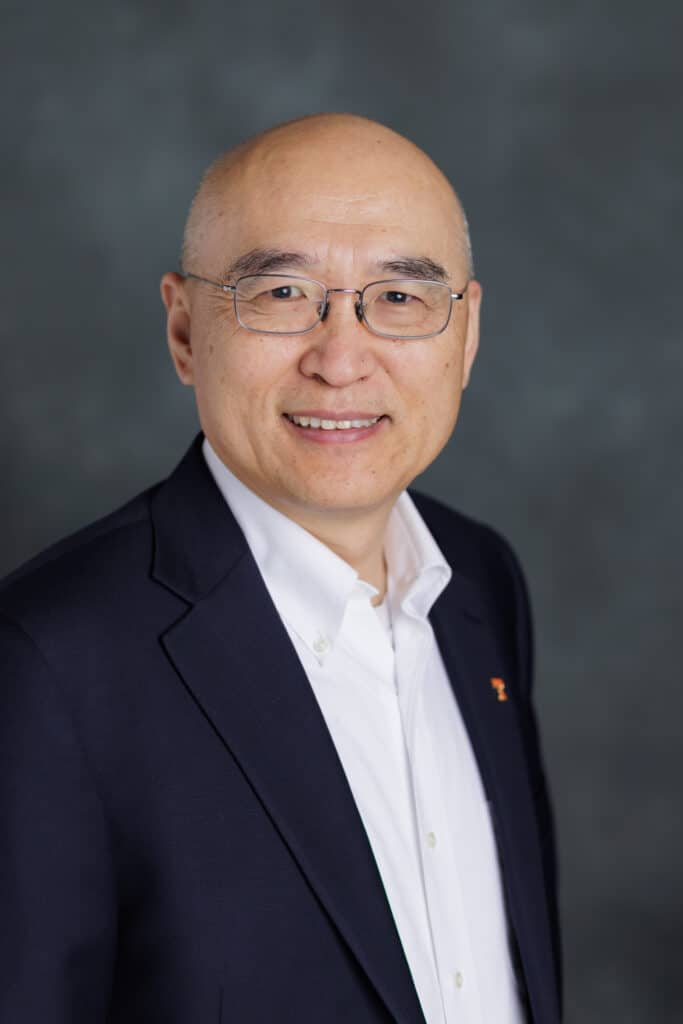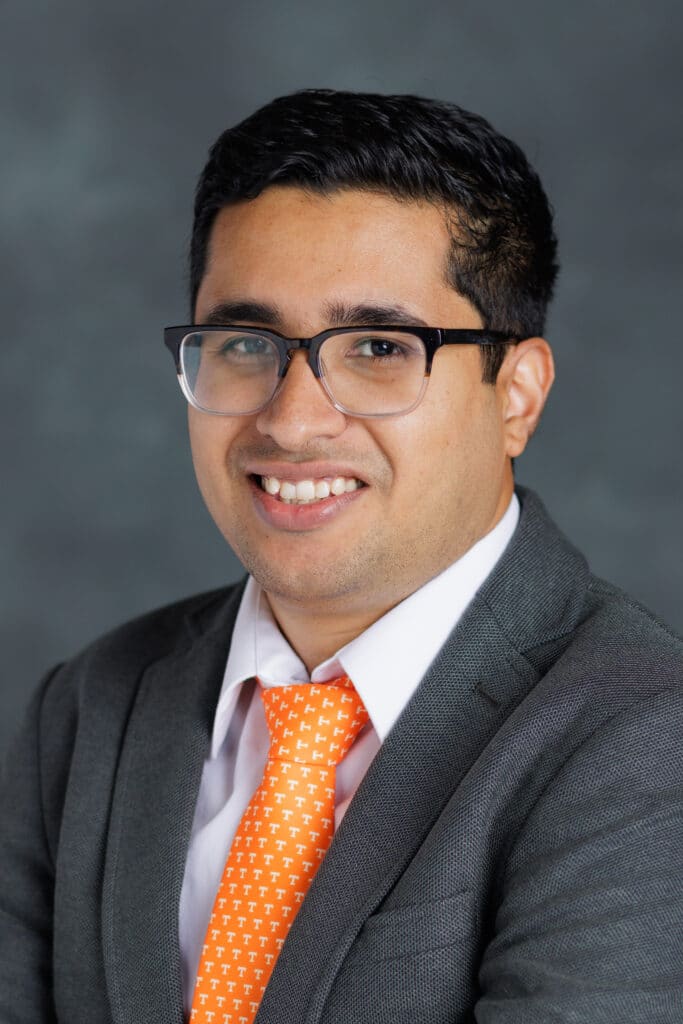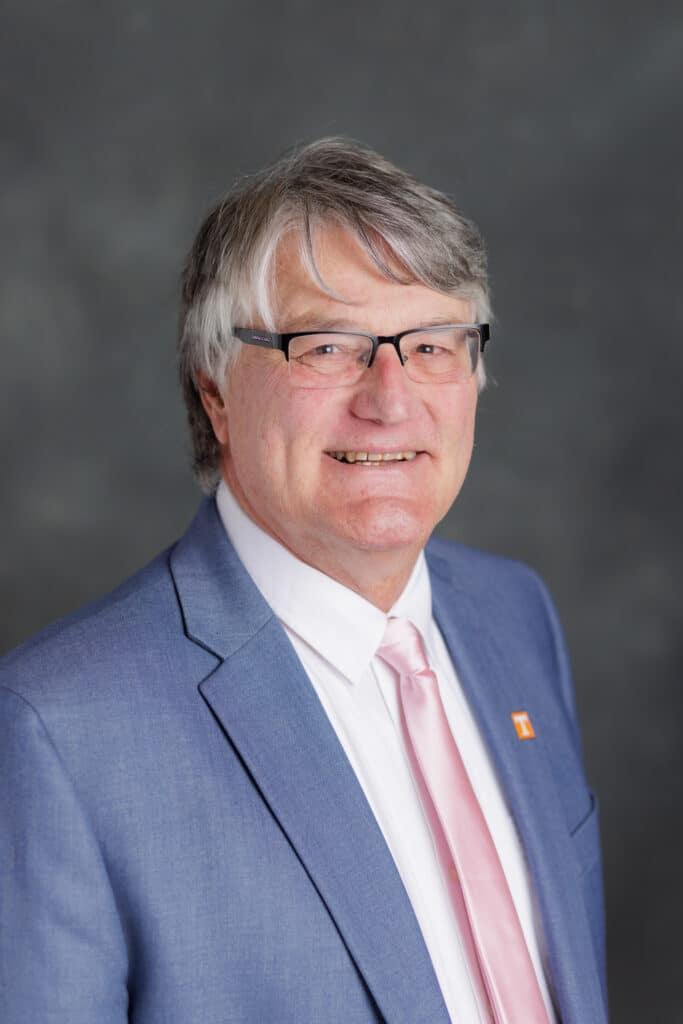Chancellor’s Innovation Fund
The Chancellor’s Innovation Fund, launched in 2023, offers seed funding to support faculty and their research teams in developing and commercializing new technologies. Each year, five winners are carefully selected to receive a one-time award of $50,000 to invest towards the refinement and prototyping of their lab-based technologies. The fund prioritizes innovation that addresses real-world challenges with the goals of supporting faculty and strengthening East Tennessee’s entrepreneurial network.
Class of 2025

Dustin Crouch
Associate Professor of Biomedical Engineering Dustin Crouch developed the EndoThumb, an implantable prosthesis designed to restore both natural appearance and touch by being enclosed in living skin. Crouch and research associate Katrina Easton will use the award to refine the EndoThumb for FDA preclinical testing, aiming for clinical trials and potential approval by 2031. Their work also involves evaluating the prosthesis’s commercial viability to ensure accessibility through insurance coverage and hospital adoption.

Jindong Tan
Professor Jindong Tan of the Department of Mechanical, Aerospace, and Biomedical Engineering developed Skillfold Robotics to equip robots with humanlike skills to help automate real-world tasks such as stocking shelves in grocery stores. His work, carried out with the help of Associate Professor of Civil and Environmental Engineering Shuai Li and Assistant Professor of Electrical Engineering and Computer Science Weizi Li, aims to address both rising labor costs and inflation by deploying agile dexterous robots that can navigate tight spaces and perform essential retail tasks. With a patent granted in 2024, the team is preparing to showcase their prototype at upcoming technology exhibitions.

Sai Swaminathan
Sai Swaminathan, an assistant professor in the Tickle College of Engineering, is leading the development of AI-driven peel-and-stick sensors that harvest energy from light, eliminating the need for traditional batteries. The On-Site IoT devices offer a low-cost, low-maintenance solution for real-time factory data processing while enhancing security through LiFi, a light-based communication protocol. With a working prototype in place, Swaminathan and his team, which includes Advanced Composites Technical Specialist Danny Norman and graduate researcher Dan Scott, are using the funding to launch pilot testing with manufacturing partners.

Thomas Zawodinski
Thomas Zawodzinski, UT-Oak Ridge National Laboratory Governor’s Chair for Electrical Energy Conversion and Storage, and Entrepreneurial Fellow Brian Washington are developing high-power aluminum-air batteries for applications ranging from drones to heavy-duty vehicles. These fully recyclable nonflammable batteries offer an environmentally friendly option by eliminating carbon dioxide emissions during operation. With power output exceeding previous benchmarks, the team aims to create a functional prototype in 2025.

Vince Pantalone
Vince Pantalone, the Charles E. Wharton Institute Professor of Plant Sciences in the Herbert College of Agriculture, is leading efforts to develop a soybean variety resistant to SCN Race 2, a newly emerging threat to soybean crops. Working alongside Professor of Plant Molecular Biology Tarek Hewezi, Pantalone recently discovered a gene for SCN Race 2 resistance and is using his funding to advance DNA sequencing for superior soybean development. Field testing in the summer of 2025 will help identify the most promising lines for future commercialization.